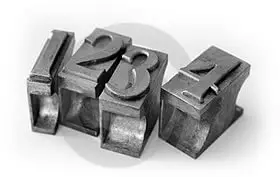To be ‘out of sorts’ is to be mildly unwell; not in one’s usual health or state of mind.
Out of sorts
What's the meaning of the phrase 'Out of sorts'?
What's the origin of the phrase 'Out of sorts'?
Since at least the 17th century ‘sorts’ has been used by typographers for the name of sets of letters. The first known use of the word ‘sorts’ in this context dates from 1668, and the word is nicely defined in Joseph Moxon’s Mechanick Exercises, or the Doctrine of Handy-works – Printing, 1683:
“The letters that lye in every box of the case are separately called sorts in printers and founders language; thus a is a sort, b is a sort, c is a sort, etc.”
If a typesetter, when looking for a particular letter, found a set of sorts to empty he might well have felt fed up about it and it’s tempting to think that this could be the source of the ‘out of sorts’ phrase.
We need to be cautious about jumping to conclusions though, as the first known citation of ‘out of sorts’, in The Proverbs, Epigrams, and Miscellanies of John Heywood, 1562, comes more than a century before the above and makes no mention of typesetting:
Fit (adj): disordered, out of sorts
So, as far as the evidence we have indicates, the phrase ‘out of sorts’ long pre-dates the first use of the word ‘sorts’ to mean blocks of type.
It may well turn out that pre-1562 citations of ‘sorts’ which refer to typesetting will be found; after all, Gutenberg invented movable type printing in around 1440.
Until then, we can only conclude that the evidence that ‘out of sorts’ derives from typesetting is non-existent and that ‘sorts’ is just a synonym for ‘spirits/health’.
See also: out of kilter.
The history of “Out of sorts” in printed materials
Trend of out of sorts in printed material over time
Related phrases and meanings
Browse more Phrases
About the Author

Phrases & Meanings
A-Z
A B C D E F G H I J K L M N O P Q R S T UV W XYZ
Categories
American Animals Australian Bible Body Colour Conflict Death Devil Dogs Emotions Euphemism Family Fashion Food French Horses ‘Jack’ Luck Money Military Music Names Nature Nautical Numbers Politics Religion Shakespeare Stupidity Entertainment Weather Women Work
How did we do?
Have you spotted something that needs updated on this page? We review all feedback we receive to ensure that we provide the most accurate and up to date information on phrases.
